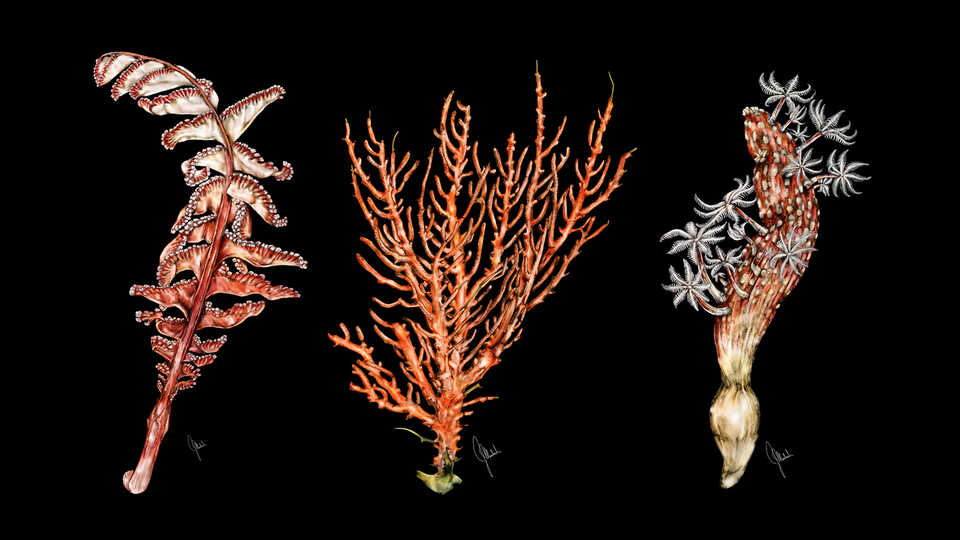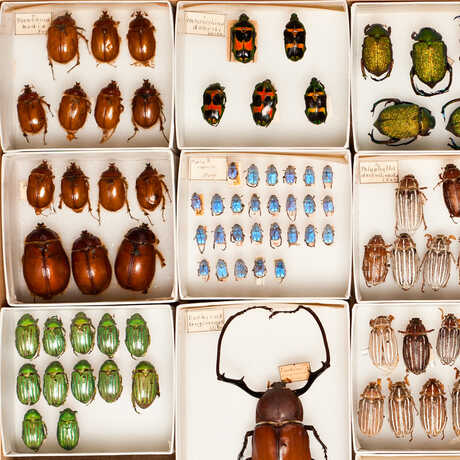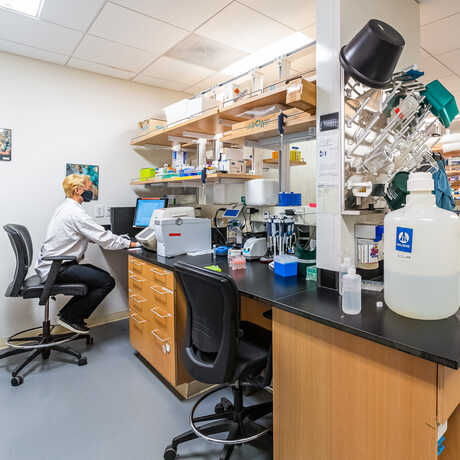See what our interns have accomplished in past programs.

The California Academy of Sciences is pleased to announce the continuation of our internship in biological illustration. This internship is open to illustrators at any level (post high school) interested in developing illustration techniques related to biological specimens.
The Academy is a natural history museum supporting research and collection activities in the disciplines of Anthropology, Botany, Entomology, Herpetology, Ichthyology, Invertebrate Zoology, Ornithology, Mammalogy, and Paleobiology. Working with one or more Academy scientists, the intern will have the opportunity to develop illustrations of specimens from our collections that may be used in scientific publications. This internship is also integrated with the activities of our Summer Systematics Institute (SSI), and the successful applicant will be encouraged to participate in all SSI activities with fellow interns, including lectures, seminars, presentations, and social activities.
This internship is made possible by the Maxwell Hanrahan Foundation, the National Science Foundation, and the Robert T. Wallace Endowment for undergraduate research experiences.
Duration & Location
The Science Illustration Internship is a full-time program (40 hours/week) for nine weeks (with a possible 10th week, if needed for any certifications), from June 2nd - August 1st, 2025 (Please note the dates have been updated). The first week of the program will be spent in the field at the University of California Point Reyes Field Station, with the remainder of the time spent in San Francisco at the California Academy of Sciences.
Summer 2025 Project
The illustration intern will work with scientists in the Herpetology department to illustrate diagnostic morphological features of amphibians across developmental (egg, tadpole, adult) stages as well as phenotypic (color) variation in lizards. Specimen illustrations will be used in new species descriptions, diagnostic keys, and scientific presentations. The intern may also have the opportunity to work in partnership with Education staff to develop content and graphics for a lesson plan on community disease dynamics in tropical amphibians.
How to Apply
-
The application process is entirely online. You will need to complete the application form.
-
The online form will ask you to prepare a statement of interest in working at the Academy.
-
You do not need to provide letters of recommendation. You will need to find two references and provide their contact information. At least one must be a science professor or academic professional (such as an instructor or teaching assistant) who knows your school work well enough to talk with us about you as a student if we contact them. Your other reference can be someone who knows you from working with you at any job, volunteer work, or community work. They just need to be able to talk about you as a person and as a learner. You should speak to these people before submitting their information to be sure they are willing to receive emails or phone calls and answer questions about you.
-
Upload a digital portfolio to Google Drive. Upload no more than 7 digital or scanned examples of your artwork in a folder on Google Drive, and set the sharing settings to “Anyone with the Link Can View”. The digital samples of work should be in the form of Portable Document Files (.pdf) files.
Deadline: January 31, 2025. Applications must be received by 11:59 pm on January 31, 2025
Helpful hints: The successful applicant will work with a scientist or scientists to develop imagery relating to the research done at the Academy. Instruction will pertain to specifics of the research being illustrated—we do not teach illustration or drawing techniques and we assume some background knowledge of biology. We expect illustration skills to be fully developed in the successful applicant because we aim to provide experience in producing publication-ready imagery. The most successful interns arrive with well-developed artistic abilities and some biological training, allowing them to get the most out of their association with Academy scientists and the lecture/lab series that runs concurrently under the SSI program.
Note that this is an illustration internship and not art that many colleges teach. The difference is that scientific illustration presents a message that is unambiguous about the subject and teaches the viewer something about the subject that the scientist is trying to convey. Applicants are encouraged to develop a small portfolio of digital works (see above) that reflect the kind of imaging used in collections-based research—describing new species, showing details of features, etc. Stylized illustrations that depict scientific ideas are fine, but human portraiture, abstract, or non-representational art are not what we are looking for. For examples, you could consult contemporary journals that publish our research such as: Journal of Paleontology, Zootaxa, and our own in-house journal, Proceedings of the California Academy of Sciences.
Notification
Applicants will be notified by email sometime in late February to early-March 2025. Due to the volume of applicants, we cannot give additional confirmation that we have received application materials received beyond the confirmation screen when the application is submitted.
Eligibility
Any undergraduate student, graduate student, or college graduate is welcome to apply. We encourage applications from groups systemically excluded from the sciences.
Housing & Stipend
A $6,500 ($650/week) stipend will be awarded to the intern. Travel to and from San Francisco will be provided. Housing (if needed) will be provided in dormitories in San Francisco (within walking distance and easy public transportation to the Academy), with details to be provided upon the selection of interns. Personal stipends may be subject to federal and/or state income taxes.
This internship is made possible by a generous gift from the Robert T. Wallace Endowment for undergraduate research experiences.

